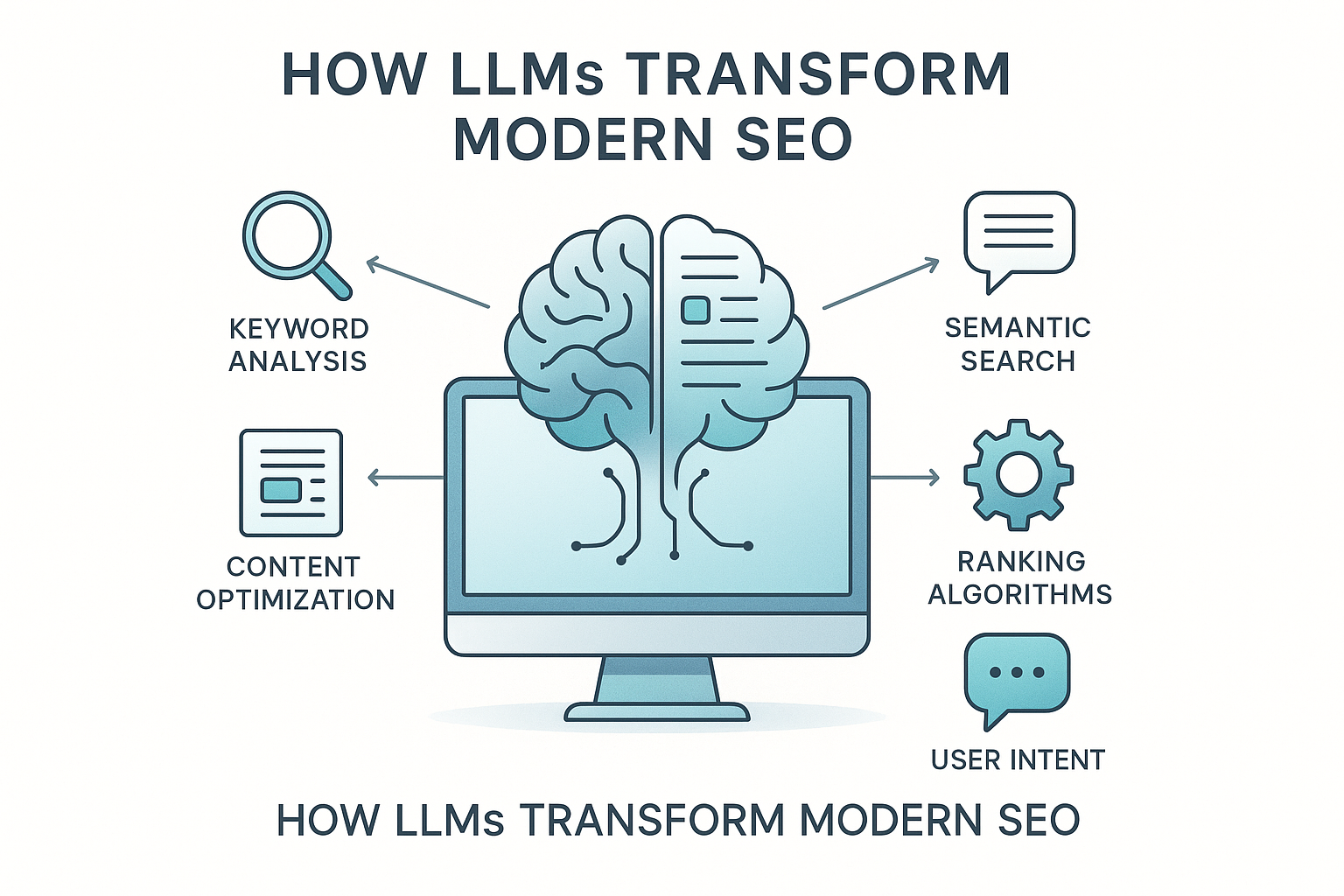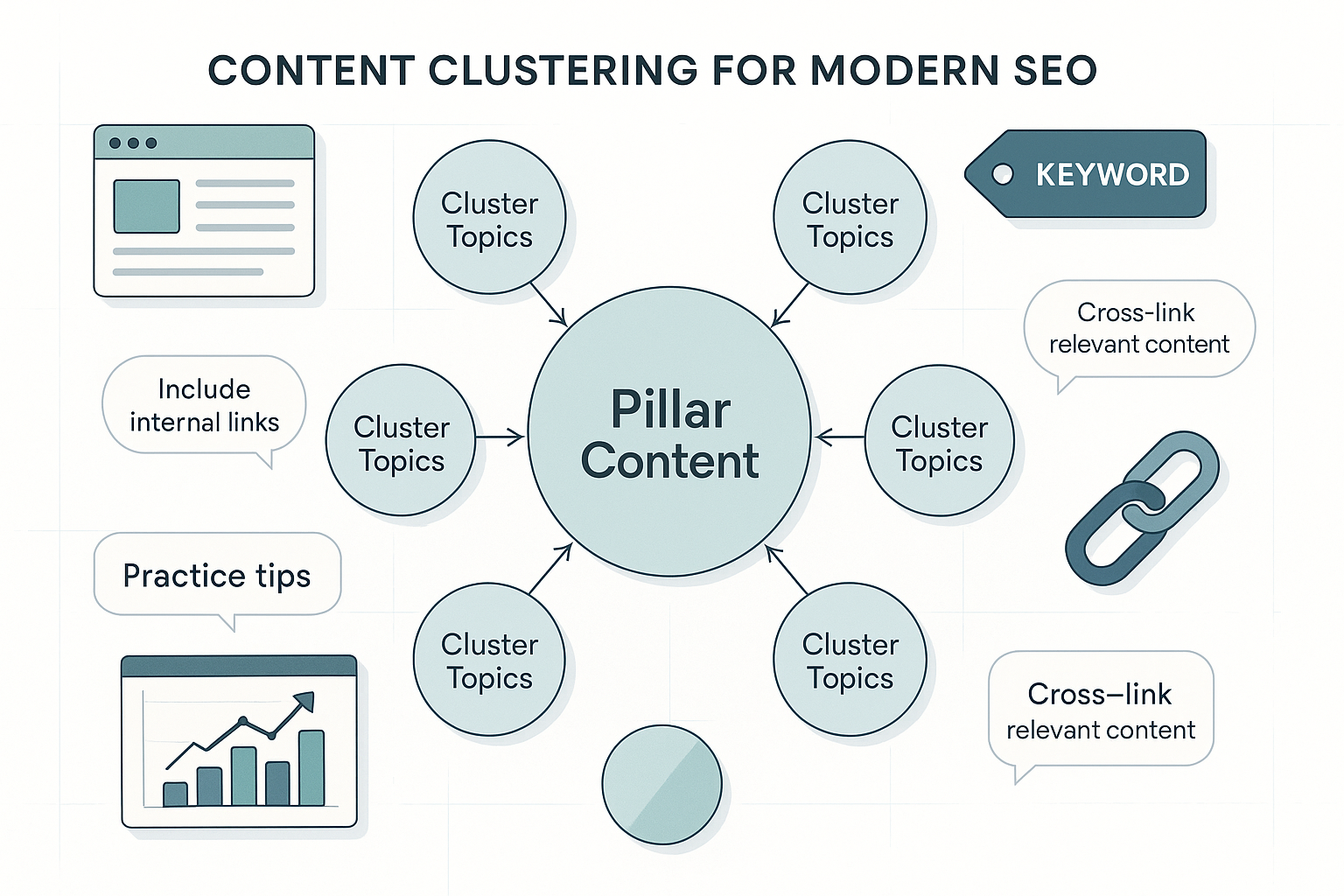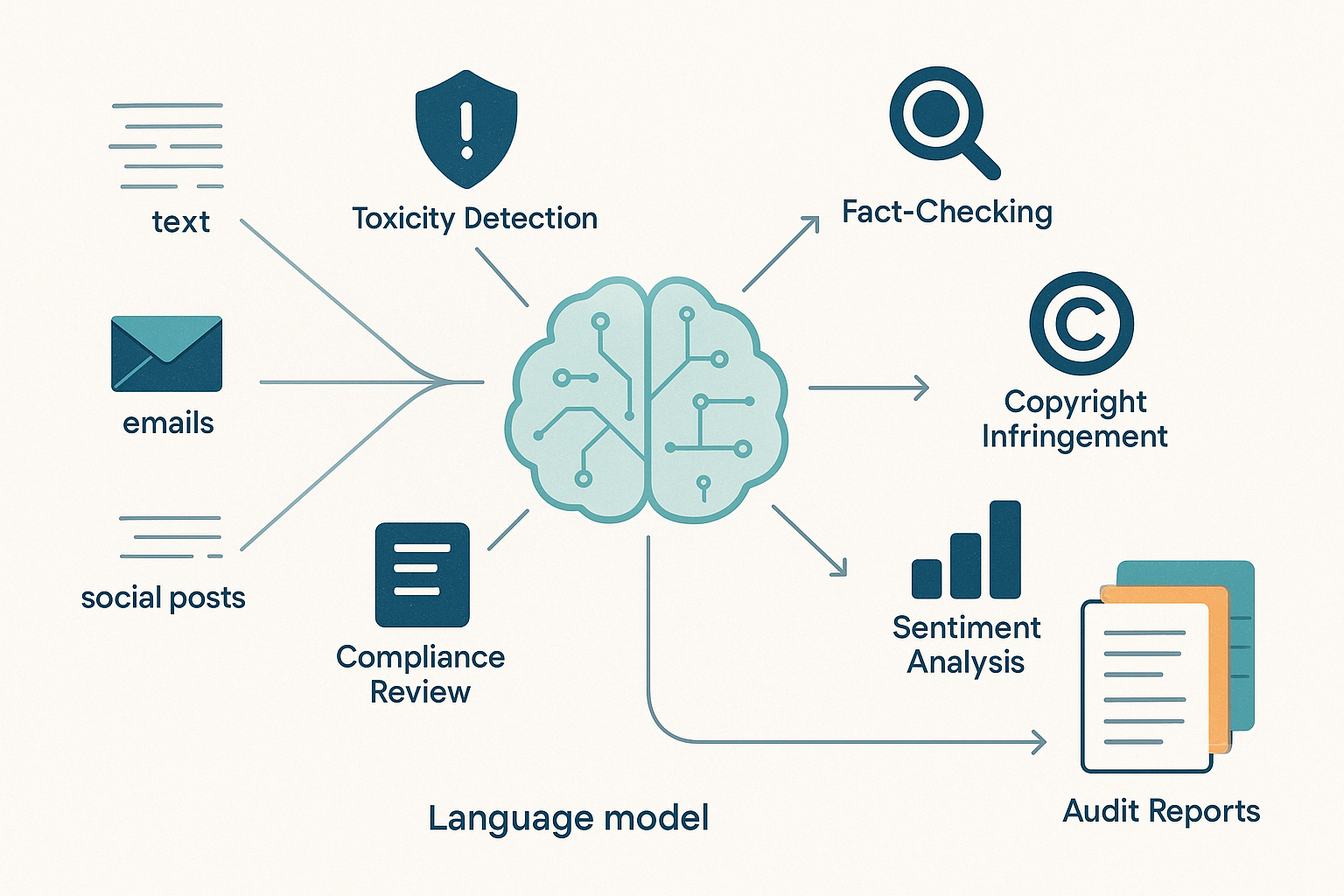Advanced on page SEO made simple.
Powered by POP Rank Engine™
Includes AI Writer
7-day refund guarantee
In the rapidly evolving landscape of content creation, a pressing question has emerged: Can AI create original content? As artificial intelligence continues to reshape industries, its impact on creative processes has sparked both excitement and concern.
AI-generated content is no longer a futuristic concept; it's here, and it's transforming how we approach writing, design, and even artistic expression. From blog posts to marketing copy, AI is now capable of generating content at an unprecedented scale and speed.
However, the question of originality remains a contentious issue. While AI can produce vast amounts of material, critics argue that generative AI may not be able to create truly original content because it lacks a personal touch and unique perspective. This raises important considerations:
- Creativity: Can machines truly be creative, or are they simply remixing existing ideas?
- Copyright: Who owns the rights to AI-generated works?
- SEO: How will search engines like Google handle AI-written content?
As we delve deeper into this topic, we'll explore the capabilities and limitations of AI in content creation, examining how it might complement human creativity rather than replace it. Whether you're a business owner, content creator, or simply curious about the future of creativity, understanding the role of AI in generating original content is crucial in our increasingly digital world.
Which is the best LLM for SEO content?
Get the full rankings & analysis from our study of the 10 best LLM for SEO Content Writing in 2026 FREE!

- Get the complete Gsheet report from our study
- Includes ChatGPT, Gemini, DeepSeek, Claude, Perplexity, Llama & more
- Includes ratings for all on-page SEO factors
- See how the LLM you use stacks up
The Mechanics of AI Content Creation
To understand whether AI can create original content, we first need to grasp how artificial intelligence generates material. At its core, AI-generated content relies on sophisticated models and algorithms that process vast amounts of data.
How AI Generates Content
- Pattern Recognition: AI systems, like GPT (Generative Pre-trained Transformer), use advanced pattern recognition to analyze existing content.
- Statistical Inference: Based on this analysis, AI can generate new content by predicting likely word sequences.
AI does not truly understand the content it creates. Instead, it learns patterns and structures from its training data, which it then uses to produce new text that mimics human-written content.
Types of AI-Generated Content
AI can create various types of content:
- Writing: Articles, blog posts, product descriptions
- Visual Content: Images, designs, and even artwork
- Audio: Music compositions and sound effects
- Code: Programming scripts and software
While AI-generated content can be impressive, the question remains: "Can AI create original content?" Critics argue that generative AI may not be able to create truly original content because it lacks a personal touch and unique perspective. However, proponents point out that AI's ability to process and combine vast amounts of information in novel ways can produce unexpected and potentially original results.
The Role of AI in Content Creation
For businesses and content creators, AI offers several benefits:
- Efficiency: AI can quickly generate large volumes of content
- Consistency: AI-produced content maintains a consistent style and tone
- SEO Optimization: AI tools can help optimize content for search engines
However, it's important to note that while AI will continue to evolve, human oversight remains crucial. Content creation is not just about stringing words together; it involves creativity, empathy, and understanding context – areas where humans still excel.
As we explore this topic further, we'll delve into the potential and limitations of AI in creating truly original content, and how it might reshape the landscape of content creation in the future.
The Case for AI Originality
While skeptics argue that generative AI may not be able to create truly original content because it lacks a personal touch and unique perspective, there are compelling arguments for AI's potential to generate original content. Let's explore the case for AI's capability to create something truly novel.
Efficiency and Scalability Benefits
One of the most significant advantages of AI-generated content is its efficiency. AI can:
- Produce large volumes of content quickly
- Operate 24/7 without fatigue
- Scale content production to meet demand
For businesses, this means faster content creation and potentially lower costs. But can AI create original content? The answer lies in how we define originality.
Novel Combinations and Emergent Behaviors
AI models like GPT are trained on vast amounts of data, allowing them to make connections that humans might miss. This can generate unexpected combinations of ideas, potentially leading to original insights. In essence, AI-generated content can surprise us with its creativity.
Overcoming Creative Blocks
Writers and content creators often face writer's block. AI can help by:
- Suggesting new angles on a topic
- Providing inspiration through generated content
- Offering a starting point for human creators to build upon
In this way, AI does not replace human creativity but enhances it, potentially leading to more original content.
Personalization at Scale
AI's ability to analyze user data allows for hyper-personalized content. This level of customization can produce content that feels original to each individual reader, even if the underlying structure is AI-generated.
SEO Optimization Capabilities
AI excels at understanding and implementing SEO best practices. It can:
- Analyze top-ranking content for a given keyword
- Suggest optimal keyword placement
- Generate meta descriptions and titles
This optimization can create content that not only ranks well on Google but also provides value to readers.
While it's true that AI-generated content may lack the deep emotional resonance that comes from human experience, it's clear that AI can contribute to the creation of original and valuable content in many ways. As AI continues to evolve, we may need to reconsider our definition of originality in the digital age.
The question "Can AI create original content?" may not have a simple yes or no answer. Instead, we might ask: How can we leverage AI's strengths to enhance human creativity and generate original content that pushes the boundaries of what's possible?
Which is the best LLM for SEO content?
Get the full rankings & analysis from our study of the 10 best LLM for SEO Content Writing in 2026 FREE!

- Get the complete Gsheet report from our study
- Includes ChatGPT, Gemini, DeepSeek, Claude, Perplexity, Llama & more
- Includes ratings for all on-page SEO factors
- See how the LLM you use stacks up
Limitations and Concerns
While AI has made significant strides in content creation, it's crucial to acknowledge its limitations and the concerns surrounding its use. As we ponder the question, "Can AI create original content?", we must consider several key issues.
Lack of True Consciousness and Self-Awareness
One of the primary arguments against AI's ability to create original content is its lack of consciousness. AI does not:
- Have personal experiences
- Possess emotions or empathy
- Understand the deeper meaning behind concepts
This limitation means that generative AI may not be able to create truly original content because it lacks a personal touch and unique perspective. While AI can generate text that appears coherent and informative, it may struggle to produce content with genuine depth or emotional resonance.
Quality Issues and Potential for Plagiarism
AI-generated content can sometimes:
- Produce factually incorrect information
- Generate text that closely resembles existing content, raising copyright concerns
- Create content that feels generic or lacks nuance
These issues highlight the need for human oversight in the content creation process, especially for businesses relying on AI-generated material.
Algorithmic Devaluation by Search Engines
As AI-generated content becomes more prevalent, search engines like Google are adapting their algorithms. This could lead to:
- Reduced rankings for AI-generated content
- Increased emphasis on demonstrably human-created content
- Challenges for SEO strategies relying heavily on AI
Absence of Emotional Intelligence and Human Touch
While AI can process vast amounts of data, it struggles with:
- Understanding context and subtext
- Crafting narratives that resonate on an emotional level
- Adapting tone and style for different audiences intuitively
This limitation is particularly relevant for creative writing, where the human touch is often what makes content compelling and memorable.
Ethical Considerations and Intellectual Property Concerns
The use of AI in content creation raises several ethical questions:
- Who owns the rights to AI-generated content?
- How do we ensure AI isn't used to spread misinformation?
- What are the implications for human jobs in the creative industries?
These concerns underscore the need for robust discussions about the role of AI in content creation and the development of ethical guidelines for its use.
While AI has made remarkable progress, these limitations suggest that the most effective approach to content creation may be a collaboration between human creativity and AI assistance, rather than relying solely on machine-generated output.
The Future of AI and Human Collaboration in Content Creation
As we look ahead, the question "Can AI create original content?" evolves into "How can AI and humans collaborate to create better content?" The future of content creation likely lies in a symbiotic relationship between human creativity and artificial intelligence.
AI as a Creative Assistant
Rather than replacing human creators, AI will increasingly serve as a powerful tool to enhance their capabilities:
- Generating ideas and outlines for writers and artists
- Automating routine tasks, allowing creators to focus on high-value work
- Providing data-driven insights to inform creative decisions
This collaboration can produce content that combines the efficiency of AI with the nuanced understanding and emotional intelligence of humans.
Evolving Roles for Human Editors and Creators
As AI-generated content becomes more sophisticated, the role of human creators will shift:
- From writers to content strategists and curators
- Focusing on adding unique perspectives and emotional depth
- Ensuring ethical use of AI in content creation
Potential Advancements in AI Consciousness
While current AI models lack true consciousness, future developments could lead to more advanced systems:
- AI with improved context understanding
- Systems that can learn and adapt more like human brains
- Potentially, AI that can create truly original ideas
However, even as AI advances, the human touch will remain crucial in creating meaningful, resonant content.
Responsible AI Development
As we navigate this new frontier, it's essential to prioritize:
- Ethical guidelines for AI use in content creation
- Transparency about AI involvement in created works
- Continued research into the implications of AI-human collaboration
By embracing AI as a tool while valuing human creativity, we can unlock new possibilities in content creation that were previously unimaginable.
Conclusion: Navigating the AI Content Landscape
As we've explored the question "Can AI create original content?", it's clear that the future of content creation lies in balancing AI's efficiency with human creativity. While AI-generated content can offer remarkable benefits in speed and scale, human oversight remains crucial. AI does not replace human creators but rather augments their capabilities. As businesses and individuals navigate this evolving landscape, embracing AI as a tool for enhancing, not replacing, human creativity will be key. The ongoing importance of human input ensures that content maintains its authenticity and resonance. By leveraging the strengths of both AI and human creators, we can unlock new realms of creativity and innovation in content creation.







